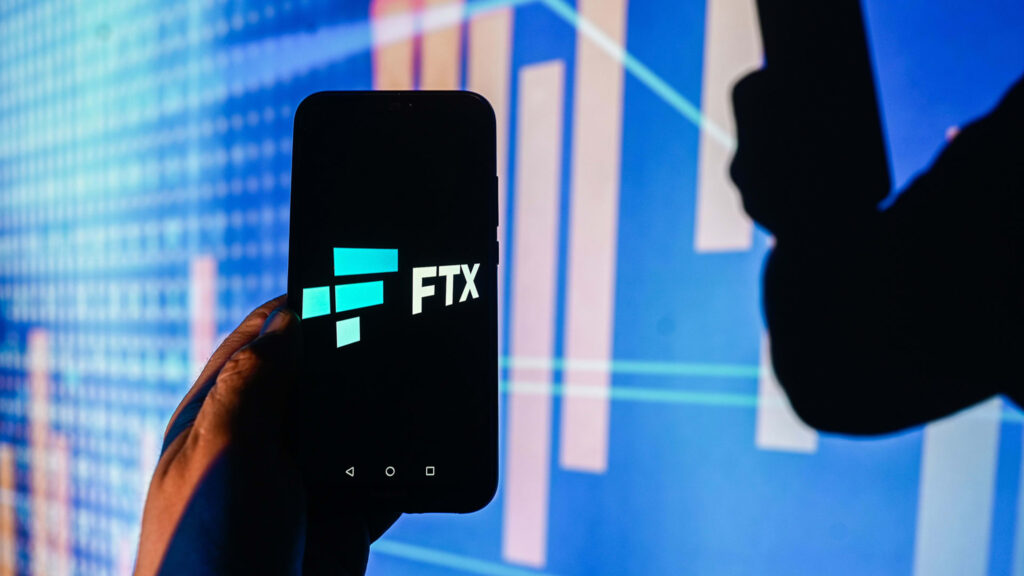-
FTX aims to return 100% of claim amounts to non-governmental creditors within 60 days of bankruptcy filing.
-
The involvement of Sullivan & Cromwell in this matter adds to the legal complexity, prompting further investigation of potential conflicts of interest.
-
The FTX bankruptcy will likely change industry norms and regulatory discourse, emphasizing trust, stability, and ethical conduct.
Some customers of the defunct cryptocurrency exchange FTX could recoup their losses pending court approval of the company’s bankruptcy plan.
However, amidst the hopeful prospect of reimbursement, investors are grappling with the realization that they will not reap the benefits of the remarkable surge in cryptocurrency prices. This is since the exchange’s collapse in November 2022.
FTX Bankruptcy: What’s at Stake for Customers and Creditors
In a recent news release submitted by FTX, currently undergoing reorganization, it was disclosed that 98% of FTX creditors, including individual investors with holdings under $50,000, stand to recover their lost funds in cash within 60 days of the implementation of a reorganization plan, subject to court and creditor approval.
John J. Ray III, now CEO and chief restructuring officer, expressed optimism about the proposed Chapter 11 plan. He stressed the intent to return 100% of bankruptcy claim amounts and accrued interest to non-governmental creditors.
Challenges and Objections
Despite the apparent fairness of the proposed plan, certain claimants have raised objections regarding the valuation of their cryptocurrency assets based on November 2022 prices. This valuation method must account for digital currencies’ substantial appreciation. This currency has surged by over 250% since the specified date.
Moreover, the Justice Department’s appointment of an independent examiner in February, tasked with scrutinizing potential irregularities in the bankruptcy proceedings, including past investigations into FTX debtors and possible conflicts of interest involving FTX’s legal representation by Sullivan & Cromwell, has added a layer of complexity to the situation.
Legal Hurdles and Uncertainties
Adam Moskowitz, a legal representative for some FTX bankruptcy claimants, expressed reservations about the ongoing bankruptcy process. This underscored lingering uncertainties despite FTX’s proposed restitution.
While denying any wrongdoing, Sullivan & Cromwell’s involvement has prompted further scrutiny of the proceedings. Additionally, concerns regarding the adequacy of assets returned to claimants through bankruptcy persist. This is particularly true given the exponential growth in cryptocurrency valuations since FTX’s collapse.
Navigating the fallout
FTX’s bankruptcy acknowledgment of the disparity between assets held and returned underscores the exchange’s challenges in addressing creditor claims. With FTX holding only a fraction of the Bitcoin and Ethereum customers believed it possessed at its demise, the exchange has been compelled to seek alternative sources of recoverable value to fulfill its obligations to creditors.
ALSO, READ; FTX Bankruptcy Filings Expose $53,000 Per Hour Drain on Legal Advisors.
A Cautionary Tale
The sentencing of former FTX chief Sam Bankman-Fried to 25 years in prison for orchestrating the fraudulent activities that precipitated the exchange’s collapse is a stark reminder of the potential consequences of misconduct within the cryptocurrency industry.

As stakeholders await the resolution of the bankruptcy proceedings, the case of FTX serves as a cautionary tale highlighting the importance of transparency, regulatory compliance, and ethical conduct within the evolving landscape of digital finance.
Navigating Legal Complexities
The prominent law firm Sullivan & Cromwell’s involvement in the FTX bankruptcy proceedings has raised legal complexities and intensified scrutiny.
While the firm has refuted allegations of impropriety, the Justice Department’s appointment of an independent examiner underscores the need for a thorough investigation to ensure the integrity of the process. Allegations of conflicts of interest and past investigations into FTX debtors add layers of legal complexity, further complicating the resolution path.
Unresolved Concerns
Despite the proposed Chapter 11 plan offering some relief for FTX creditors, concerns persist regarding restitution adequacy. Adam Moskowitz’s apprehensions reflect broader uncertainties surrounding the FTX bankruptcy process, emphasizing the need for transparency and accountability.
As stakeholders await court approval and creditor validation of the reorganization plan, lingering doubts shadow equitable resolution.
Redefining Industry Standards
The FTX debacle underscores the imperative for regulatory reform and enhanced oversight within the cryptocurrency ecosystem.
As digital assets gain mainstream acceptance, regulatory frameworks must evolve to safeguard investor interests and mitigate systemic risks. Sam Bankman-Fried’s sentencing serves as a cautionary tale, highlighting the potential ramifications of legal non-compliance and fraudulent behavior within the burgeoning crypto industry.
Looking Ahead
The outcome will reverberate throughout the cryptocurrency landscape as FTX bankruptcy navigates bankruptcy proceedings. This will shape industry norms and regulatory discourse.
The resolution of the FTX case will serve as a litmus test for the crypto market’s resilience and ability to address challenges with transparency and accountability.
Amidst legal intricacies and financial uncertainties, stakeholders must remain vigilant, advocating for enhanced regulatory oversight and ethical conduct. This is to foster trust and stability within the digital asset ecosystem.
Conclusion
The FTX bankruptcy saga epitomizes the cryptocurrency industry’s inherent complexities and challenges.
As stakeholders grapple with legal disputes, regulatory scrutiny, and financial restitution, the case underscores the need for increased transparency, policy reform, and ethical conduct. While the proposed Chapter 11 plan offers hope for creditors, unresolved concerns and legal complexities loom.
This necessitates a concerted effort to redefine industry standards and restore investor confidence. As the crypto landscape evolves, the resolution of the FTX case will serve as a watershed moment, shaping the future trajectory of digital finance and regulatory oversight.
ALSO, READ; Sam Bankman Fried: Unexpected Twists and Turns in the Aftermath of the FTX Fiasco.
